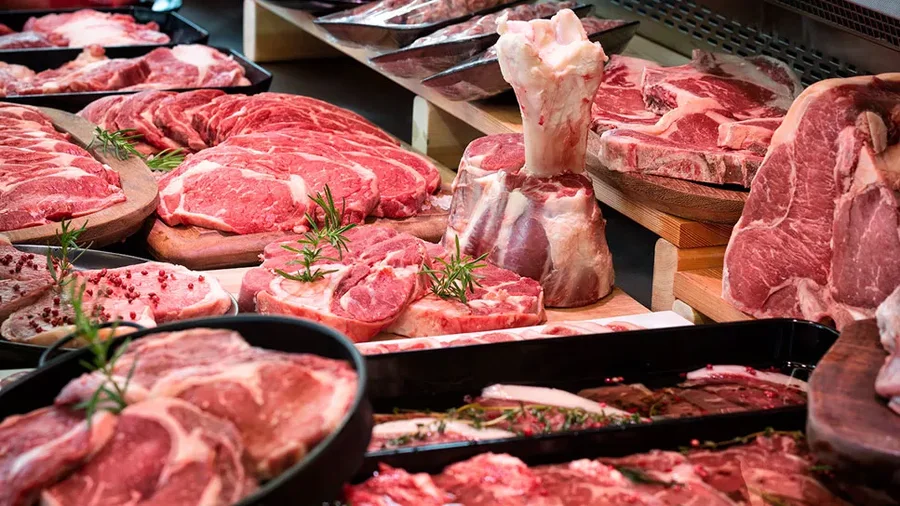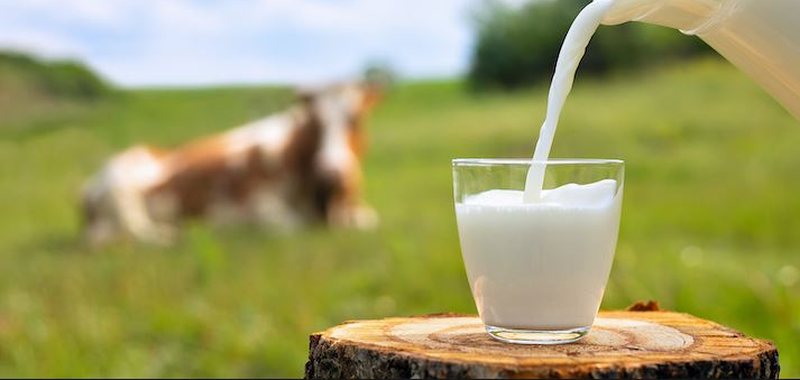Animals are decreasing, imports are "saving" the market/ Livestock production marks a significant decline in a decade

The continued decline in meat and milk production, along with shrinking livestock numbers in most categories, is a worrying signal for the livestock sector. The lack of effective subsidies, high animal feed costs, and the emigration of labor from rural areas are directly affecting domestic food production.
Albanian livestock suffered an overall decline in 2024, according to official data. While the number of cattle increased by 3.3%, the number of cows decreased by 3.5%, also contributing to a decrease in milk production by 2.7%. Significant declines were recorded in all main categories, with wool falling by 2.5%, sheep by 3.9%, pigs by 9.4%, poultry by 0.6% and equidae by 12.2%.
Overall meat production in Albania has experienced a significant decline over the period 2014–2024. From around 155 thousand tons in 2014, production has fallen to around 130 thousand tons in 2024, which translates into a contraction of -15.9% in a decade. The sharpest decline has been recorded in the last five years, with a trend that confirms the steady weakening of the livestock sector. In 2024 alone, the annual decline was -3.8% compared to the previous year.
The Fier region, although it has marked a slight decrease in 2024 compared to 2023, remains the largest region in terms of meat production in the country. With 26 thousand tons produced in 2024, Fier covers over 20% of national production and is among the only ones that has maintained a positive balance in the long term. This indicates a more stable farm structure and perhaps greater investments in livestock infrastructure.
Data on meat and live animal imports during the period 2005–2024 confirm Albania’s increasing dependence on foreign markets to meet its meat demand, also influenced by tourism in recent years. In 2024, meat imports reached nearly 48.6 thousand kilograms, while live animal imports reached a record 31 thousand kilograms, marking a record compared to previous years. This increase comes at a time when domestic meat production is in continuous decline, as previously analyzed. The increase in imports in both quantity and monetary value (from 4.2 billion lek in 2005 to over 8.2 billion lek in 2024 for meat) indicates that the domestic market is compensating for the lack of domestic production with increasingly costly foreign purchases. This situation adds pressure on the trade balance and shows that the decline in livestock in many regions is creating not only economic consequences for local producers, but also a risk to the country's long-term food security.
Based on INSTAT data on livestock, the only exception is beekeeping, where the number of hives has increased by 13.2% and honey production has increased by 5.4%, marking one of the most positive developments in agriculture this year.

Army, how was the budget exceeded 2% of GDP? - 527 million euros were planned for defense for 2025
Albania has significantly increased investments in the defense sector, where for the first time in 2024, funds reaching 2% of Gross Domestic Product have......

Domestic milk "runs out", that powder increases! - In 5 months, 6.5 million more lek were imported
In the Albanian market, fresh milk, from the farm, with the familiar taste of nature, is being reduced from year to year. Recent statistics show that......

The Dollar and the Franc Weaken Significantly - What Happened in the Foreign Exchange Market Today?
The European currency has not registered significant price movements this Tuesday either, being bought today at 97.5 lek and being sold at 98.3 lek compared......

Trump declares ceasefire between Israel and Iran - US President announces end to fighting within 24 hours
United States President Donald Trump announced that a "complete and total" ceasefire between Israel and Iran had been "fully achieved." Trump says the......

Extreme heat "changes" the tourist map - Over 80% of Europeans are choosing new destinations because of the climate
Climate change and the extreme heat waves of recent years are changing travel habits, redrawing the tourism map and creating new challenges for traditional......

Greece "lures" foreign investors - Foreign direct investment increased by 41.5% in 2024
Greece recorded its second best performance in the last five years in 2024, in terms of attracting foreign direct investment (FDI). According to the annual......

Will the price of oil increase in Albania?! - Experts: Closing Hormuz would cause high inflation
The world is holding its breath due to the escalation of conflicts in the Middle East, and the most mentioned name in world news is the Strait of......

National Social Housing Program/ Gonxhja: 1,253 families in 35 municipalities of the country benefit!
"Like never before, 1,253 families in 35 municipalities benefit from the National Social Housing Program, " writes Minister of Economy, Culture and......


















